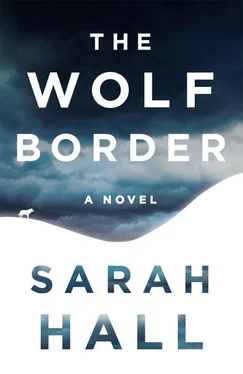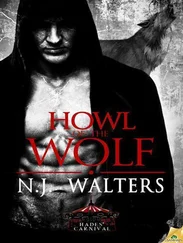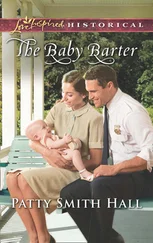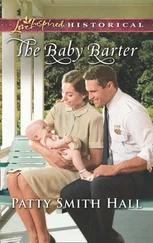I’m not so sure. He may not be the right candidate. He’s going to sound –
Colonial, Thomas suggests.
She stands awkwardly at the side, waiting for the evening to get going, and to be over.
Well-dressed, grey-haired guests arrive. Retirees and the district’s rich. Conversation is of the World Heritage status bid, new speed limits on the lakes, the Scottish polls, and, intermittently, the wolf project. Rachel is introduced to various people. She is asked the same basic questions, which she answers patiently, mustering as much positivity as she can — she is, after all, representing the estate. Ebullient noise and laughter fill the drawing room. A waiter appears and takes over the serving of the champagne, leaving the hosts free to circulate. Trays of hors d’oeuvres rotate through the crowd. She meets the local vet, Alexander Graham, who will be responsible for monitoring the pair over the quarantine period, before release, and will help her with the implantation surgery. They shake hands. He is broad, well over six feet; he has the cut of a country vet, fully capable of wrestling out breech calves and clipping the hooves of prize bulls. His upper lip is fuller than the lower, and scarred — a souvenir of the profession, perhaps, or an old rugby injury — he looks the type. He seems out of place, like her, in his inexpensive civilian jacket and tie, though less awkward, and wryly entertained by the proceedings.
Here we all are then, he says. Seems a bit previous when they haven’t arrived yet. Still, dinner and a do, I’m not complaining.
He drains his champagne glass, sets it down on a nearby bureau, and scans the room for the rotating waiter. As the hors d’oeuvres pass, he takes several and lines them up on his palm. Gelatinous fish eggs, slivers of raw, blue-looking meat; nausea rises in Rachel and she waves the offered tray away.
All set for bringing them over? he asks.
Seems so. The flight’s booked. And they’re fit enough to travel now.
Why were they in the rescue centre?
The male had a leg injury. The female was poisoned. But her system seems fine. She should be able to breed.
He nods. They speak casually for a few minutes. Alexander has been researching his new charges and their possible ailments — cataracts and cancers, and depression, which is not unlikely during their time in quarantine. The smaller enclosure, in which they will be kept and monitored for the first few months, will be hard after the Romanian mountains. The highlight of his day today, Alexander confesses, was cutting up a stillborn calf inside a cow’s uterus using cheese wire, saving the cow in the process.
Something of a personal method.
Ingenious, she says.
Thanks.
He folds together two of the delicate tidbits and eats them. He is likeable, and will be a good colleague, she decides. There’s stubble under his ear. His collar is not ironed. But his nails are in good condition, square and clean — the hands of a medic. There’s a pale mark on his ring finger. Out of the corner of her eye, she sees Sylvia hovering with another pearled, vanilla-haired guest, waiting to introduce her. Rachel tries to extricate herself politely, but Alexander is oblivious, or not keen to have her company replaced. He begins telling her about an imported hybrid dog he had to put down several weeks ago, which did not fall under the licensing laws.
I can’t prove it, he says, but it was definitely crossbred with something wild. There’s a European loophole people are exploiting. It’s a show thing. They like the big, hard, wolfy-looking ones. They can be pretty dangerous if they’re trained wrong.
What did it do?
Went for a kid. Passersby got it off but he still needed stitches.
Christ.
You’ll have seen a lot, though, over where you were.
I did. They get sold out of the back of vans at powwows. You don’t know what you’re getting half the time. Part-wolf. Part-husky.
Hello, Baskervilles.
She laughs. Sylvia guides the hovering lady away. Another waiter appears and calls them through for dinner.
Great, I’m starving, Alexander says. Good luck with the seating plan.
The dining table is long and formal, but new, artisanal, with a glass window in its centre filled with amber resin — another of the modern touches in the Hall. They are positioned around the table in some kind of meaningful order, Alexander at the other end — he catches her eye, smiles. Rachel finds herself between the director of the Woodland Trust and mayoress of Egremont. The cuisine is exceptional — hare pâté, escargot, local freshwater char — though she hasn’t much of an appetite. Moments of queasiness overtake her as the rich aromas drift up from the plate. She sips the wine, thinking, it doesn’t really matter, but the taste holds no enjoyment, either. The mayoress talks about chaos across the border, an impoverished state of Scotland, indebted and in need of European bailout, the usual independence scare story. She will not watch the debate tomorrow, she announces, to do so would be to credit the proceedings with unwarranted seriousness. Her tone of English superiority is annoying. Is it any wonder they want out? Rachel almost says.
They are halfway through dessert — delicate baked pear in a luscious red sauce — when Rachel hears the sound of rotor blades moving up the valley. The craft sounds big. Mountain rescue, a Sea King, perhaps. Some climber has come off Pillar or Coniston Old Man. The thrumming intensifies, renders conversation difficult, then pointless. The craft puts down on the helipad behind the stables in a glory of noise, and through the window she sees a flash of red and black livery. The engine powers down. Thomas Pennington stands.
Ahoy! he calls. Late, but forgivably so.
He drops his napkin and excuses himself. Two minutes later a black-suited security guard enters the dining room. He stands by the doorway, fists bolted together in front of his groin. The Prime Minister enters, with Thomas Pennington by his shoulder. The two are in casual conversation. It takes a moment for surprise to register fully in Rachel. She remains seated while guests at the table begin to respectfully rise, then she too stands. Alexander catches her eye again. His expression is droll. After the day’s trick with the cheese wire, elbow-deep in a cow, perhaps nothing can faze him. Sebastian Mellor does not match the image of the man elected four years ago. The usual degradation in office has occurred. His hair is thinner, greyer; the stress of the job has taken its toll. He holds a hand up, greets the room.
Don’t let me interrupt your delicious dinner, he says.
As he passes by, Mellor shakes hands with Vaughan Andrews, though there seems to be no overflowing warmth between the party members. There’s an extra setting at the table, ready. The Prime Minister sits, a waiter politely confers with him, and he is brought a glistening pear. Rachel overhears talk of schedules, cloud cover, and visibility, night flying regulations. Polite laughter bubbles around the man. There is no vast charisma, but his presence is certainly felt; she can see people fidgeting and glancing, or trying not to. Everyone except Sylvia, that is, who is captivating her neighbour, attending to the task without pause. Clever girl, Rachel thinks. Mellor eats the dessert quickly, spooning the sauce while holding back his tie. He makes a joke about getting to Scotland for last orders, apologises, stands. The visitation has taken no longer than twenty minutes.
Before departure, Thomas Pennington shepherds him towards Rachel and she is introduced. She stands again. She does not know what the correct protocol is, what term to use. The moment passes in a haze; she says very little. Hello. Hello. Wonderful project — very in keeping with our countryside-pride initiative . His manner is inoffensive, bland almost; he is one of several beige Etonians at the top of the league. But his privileges are wealth-related rather than dynastic, and he knows how to meet and greet. He excuses himself. Charles will be getting annoyed with me . The pilot, perhaps, or the security detail. He leaves.
Читать дальше












